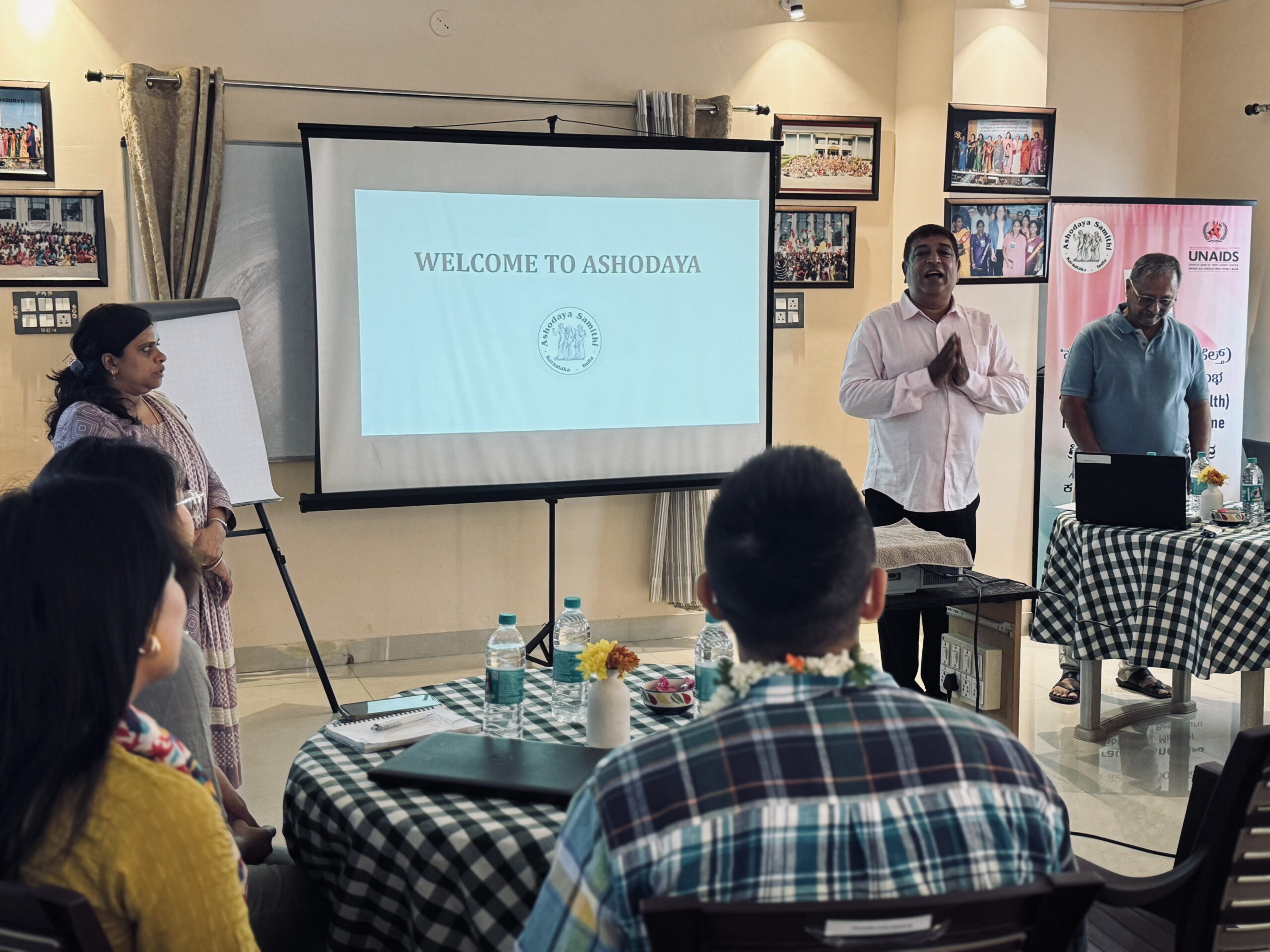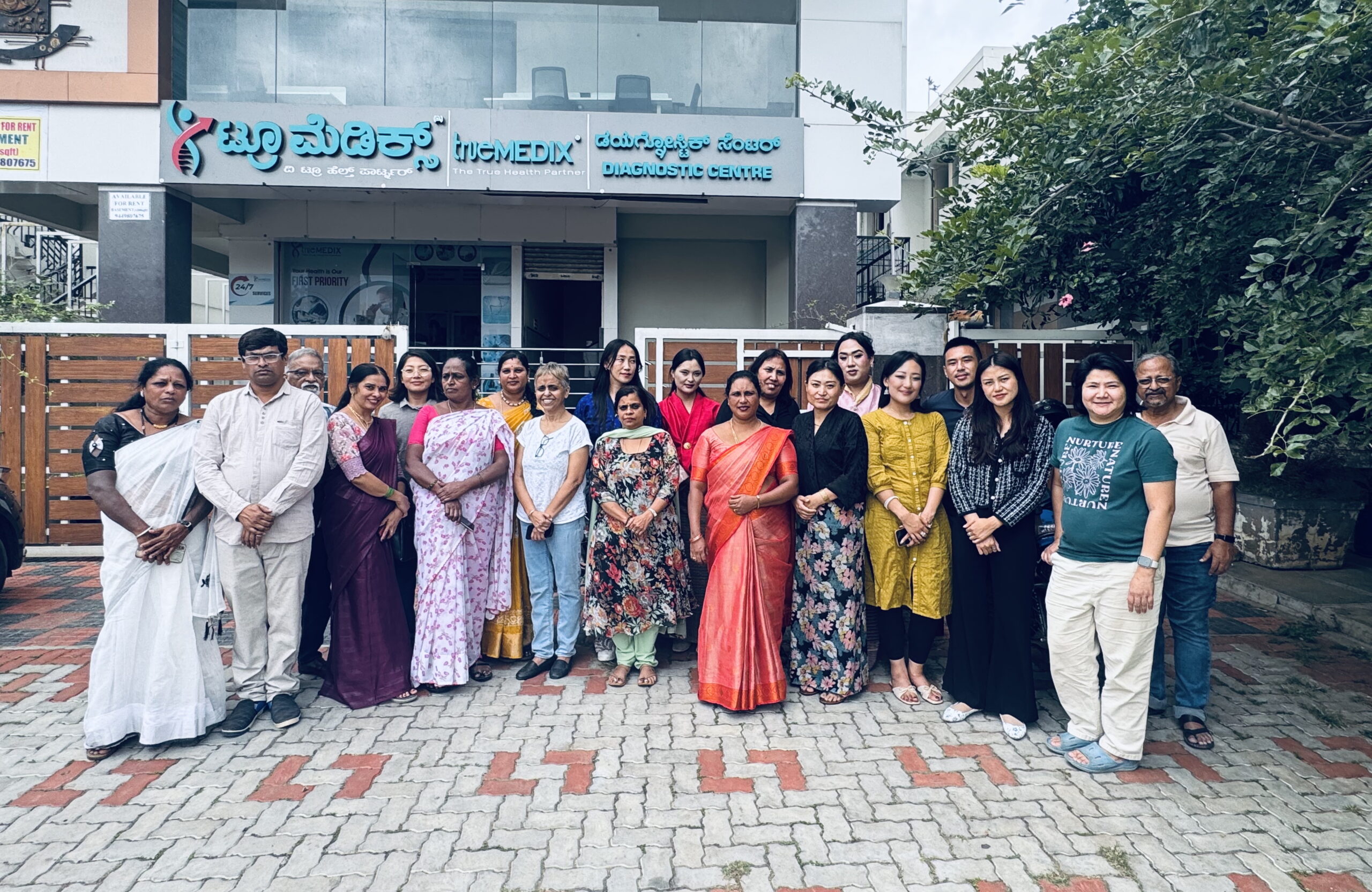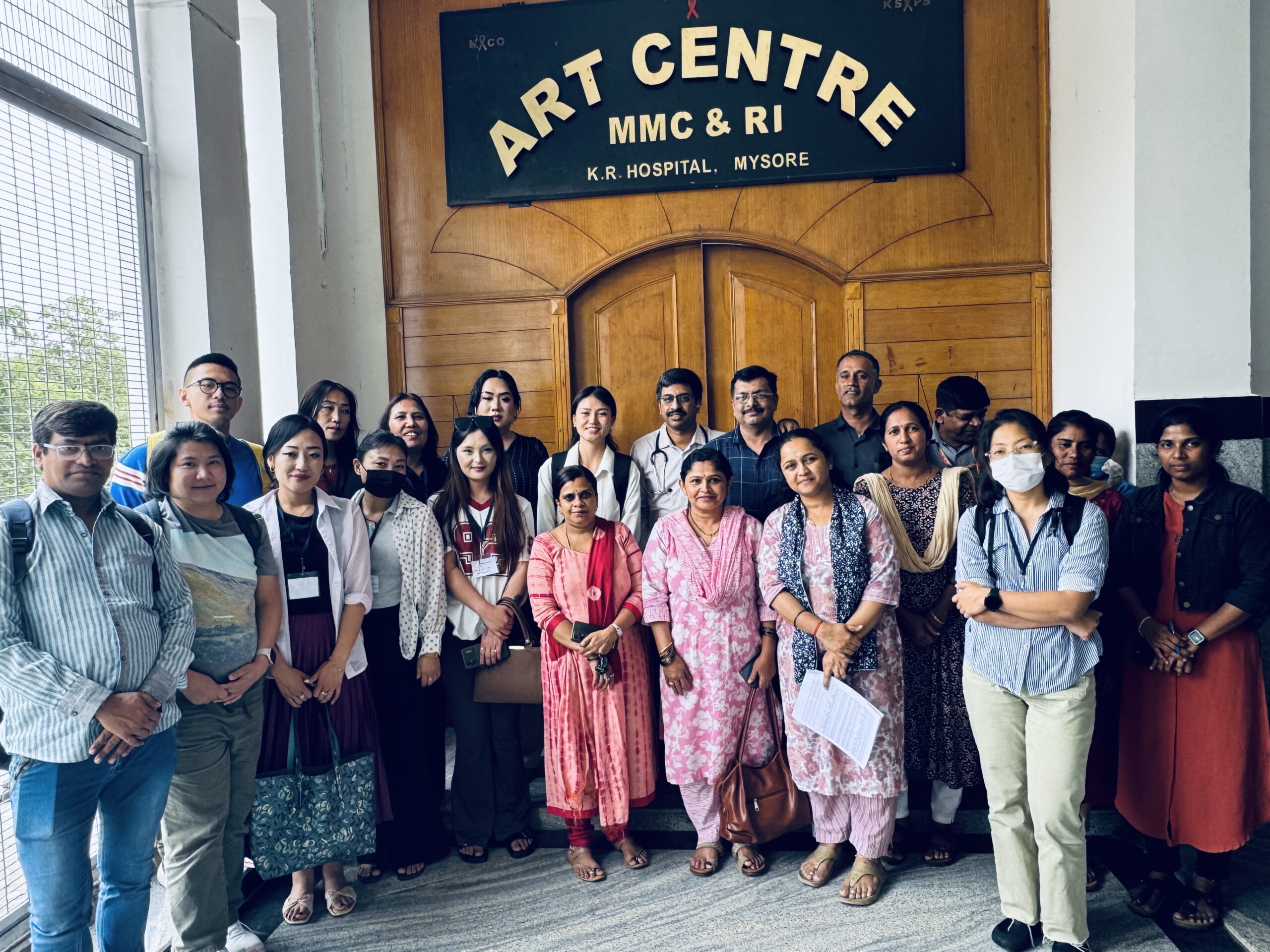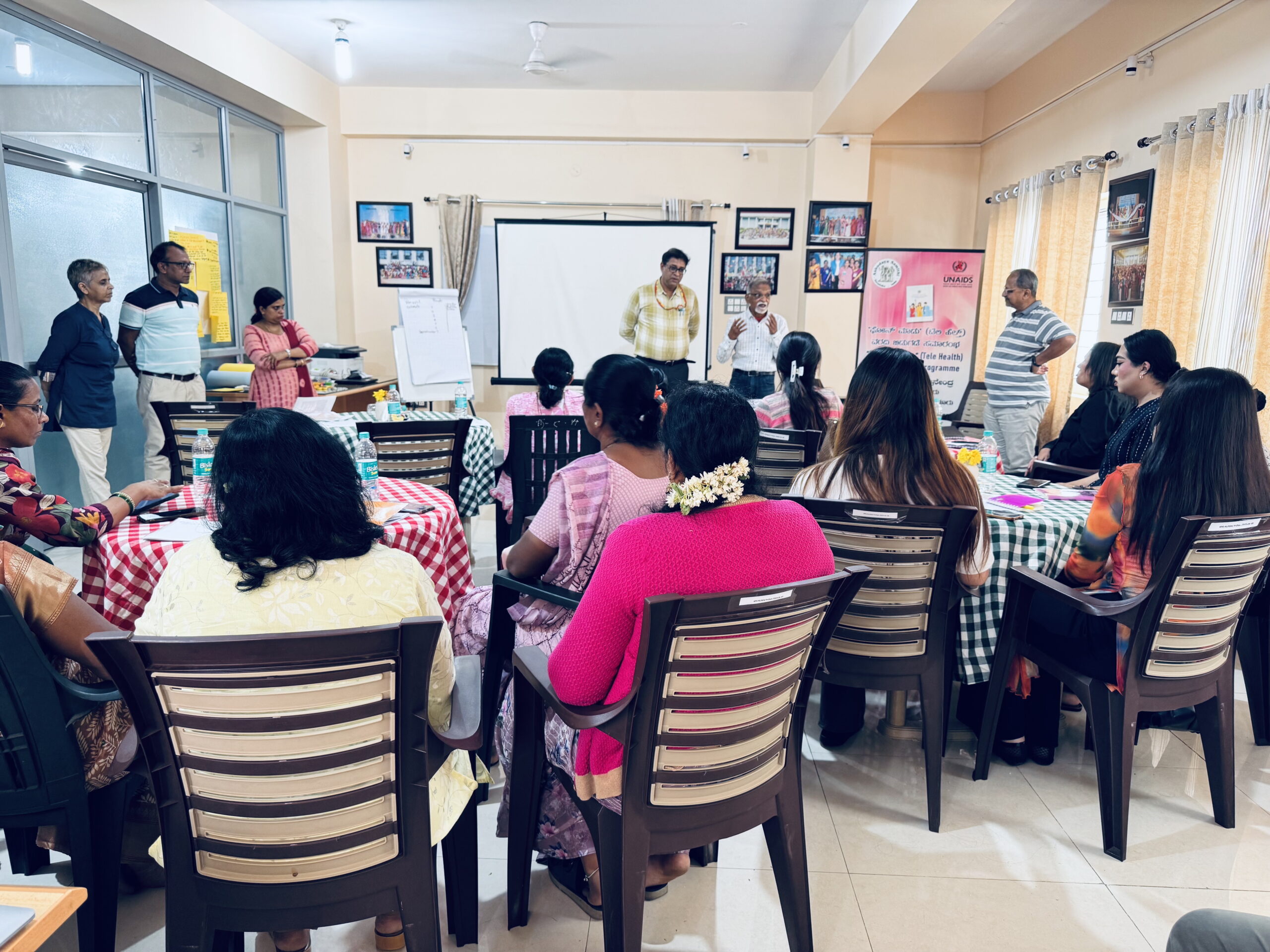RENEW, National HIV/AIDS and STI Control Program, Ministry of Health, Save the Children Bhutan, and Health Equity Matters, went on a five-day educational tour to Asho Daya Samithi, a sex worker-led organisation in Mysore, Karnataka, India, from September 1st to September 5th, 2025. Through community-driven, rights-based initiatives, the visit aimed to increase Bhutan’s response to HIV and gender-based violence. It was organised under the SKPA-2 program and directed by RENEW in partnership with Save the Children Bhutan, the Ministry of Health (NACP), and the Red Purse Network.
Representing more than 8,000 sex workers, Asho Daya Samithi has developed into an impactful organisation in the fields of legal advocacy, inclusive health systems, and community development. The Bhutanese team saw their trip to Asho Daya as more than just a technical exercise; it was a motivational example of what can happen when underrepresented groups take the lead in their own initiatives.  During the tour, participants participated in interactive sessions, field trips, and storytelling that embodied the principles of collective ownership, dignity, and trust. Participants witnessed firsthand how peer-led leadership changes lives and systems, whether they were at the community-run Mandya Drop-in Centre or the inclusive ART Centre at KR Hospital in Mysore.
During the tour, participants participated in interactive sessions, field trips, and storytelling that embodied the principles of collective ownership, dignity, and trust. Participants witnessed firsthand how peer-led leadership changes lives and systems, whether they were at the community-run Mandya Drop-in Centre or the inclusive ART Centre at KR Hospital in Mysore.


The tour of home-based sex work environments was one especially moving experience, where women talked about how they overcame threats of violence, harassment, and stigma while juggling caring and financial obligations. Here, peer educators were essential not only as service providers but also as channels for crisis reaction, solidarity, and support.
 Some of Asho Daya’s most important lessons were:
Some of Asho Daya’s most important lessons were:
- Community-led governance: By actively engaging in decision-making processes, sex workers promote accountability and ownership.
- Engagement of peer educators: Reliable community people are educated to provide health services, assist with crisis response, and fight for rights.
- Integrated service delivery: Usually through decentralised centres, HIV services are offered in conjunction with social, mental health, and reproductive care.
- Economic empowerment: Sex workers can attain financial stability and independence through models such as the USHA Cooperative.
- Policy innovation: Rights protection and trafficking prevention are aided by community-driven systems like Self-Regulatory Boards.
An action plan tailored to Bhutan was created at the end of the tour, detailing ways to modify Asho Daya’s methods for the country’s particular circumstances. Among the priorities are:
- Bolstering neighbourhood-based programs for LGBTQI+ poeple and sex workers.
- Increasing outreach to home-based workers who are difficult to reach.
- Enhancing peer educators’ leadership and crisis-reaction skills.
- Investigating inclusive health solutions like telehealth and strategies of financial empowerment.
Opportunities and Difficulties
The Bhutan team emphasized that Asho Daya’s core values of inclusiveness, dignity, and community leadership are universal and adaptable, even as they acknowledged contextual challenges such as smaller populations, legal sensitivities, and stigma-related barriers.
‘When sex workers lead their own movements, services become more responsive, safer, and rooted in dignity. This visit showed us that change is possible, and it begins with trust and community ownership’ — Red Purse Network Member